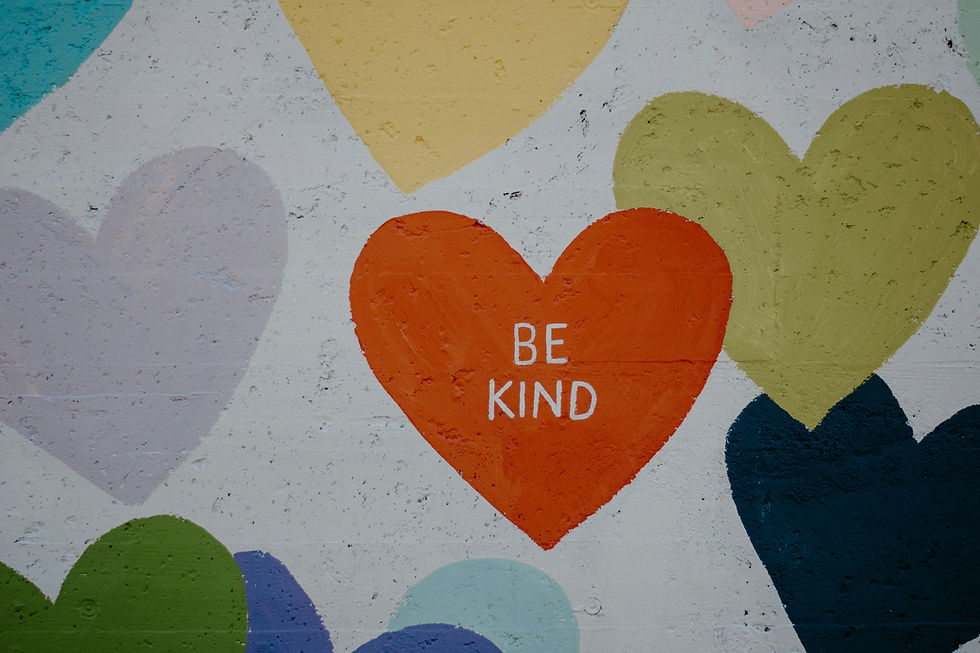Why we are all responsible for mental health
- Charlie Winton

- Nov 28, 2023
- 3 min read
Mental health has never been so important. Everywhere we turn there is negative news. A cost of living crisis, wars, an under-pressure health system, inflation, the climate crisis, mortgage rate increases...all after navigating a pandemic.
Social media is set up to cause controversy and the negative news feeds traditionally bring more user engagement, so this news designed to cause worry, panic and anxiety is spoon-fed to us on a daily basis on an algorithm that is designed to hook you in.
Our cars are more expensive, energy bills higher and we have longer waiting lists than ever for public healthcare services.
As an organisation we have been partnering with brilliant cyber security organisations looking to protect people online, but this is another threat we can add to the list. It is becoming more dangerous than ever to go online for both ourselves and our families.
You might be wondering when this blog is going to turn around and become more positive and shine a light on some brilliant news however I am sorry that is not the case. I am trying to highlight the overwhelming amount of stressors and triggers for people before they have even set foot into their workplace. A place that is notorious for causing more stress, anxiety and burnout than most.
The worrying trend for me is organisations then put in place private healthcare, crisis hotlines and employee assistance programmes to support their staff. This however, does not negate the issues around manager communication, targets, workplace pressure, bullying or even worse issues that are common in the office and often caused by the culture.
We turn up to work with a constant reminder of all the things that are going wrong in the world, affecting us personally or those that we know and then it is exacerbated in the workplace and yet organisations think 6 sessions of counselling is enough to offer to keep their employees.
It has never been clearer that people are not put at the centre of the support we need (even by ourselves), and often we rely too heavily upon our employers and healthcare system to "fix" us.
The time is now for proactive action. As individuals we need to become more self aware and understand what the root cause of our stress/happiness is. Knowing what brings us joy is just as important as knowing what stresses us out.
Sharing experiences with others is vital. No one is a mind-reader so don't pretend to be. Share how you are feeling with those you care about, what is going well for you and what is not and how you are dealing with it. People are far more likely to open up to you if you share your experiences and even more likely to use some of the ideas you share that work for you...if you tell them.
It's not good enough anymore for us to accept there is a stigma. We have to change it, not expect someone else to do it for us. If you want less mental health crises then start sharing with others. Family and friends I find are a good place to start but don't just stop there you never know who you might help.
And finally, my message to companies. Whatever you think has worked for the last 50 years in people operations, it hasn't. £117.9bn lost in 2021 to mental health issues highlights this clearly. If you have an insurance plan or offer a free subscription to a mental health app, this is not going to help you understand your employees. A survey system once a year is not going to work either. Building a culture around regular feedback, continuous learning and a stigma free workplace is your best option. It is not easy to do because of the stigma already built in after years of the same business models but it can be done.
If you want to attract, retain and support your employees, then listen to them and prove by your actions you are doing so. There is no other way to do it sadly.
It is all of us. All our responsibility to change our outlook on mental health. If we want less issues, mental health crises and suicides this is our reality and we have to be accountable for our part. It all starts the next time you check in with someone.




Comments